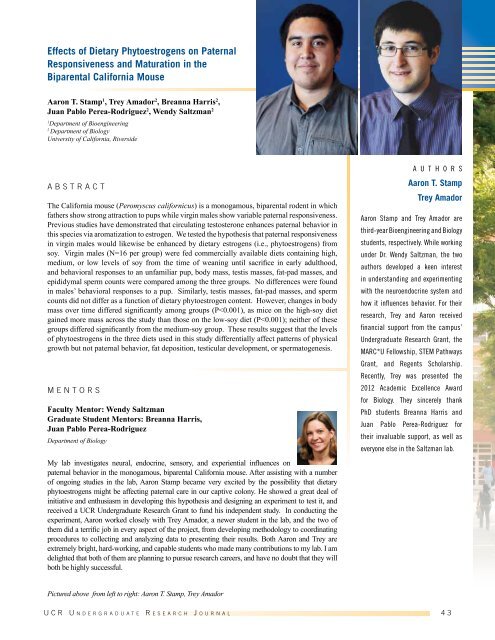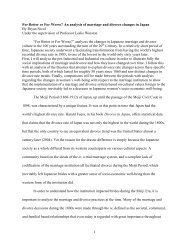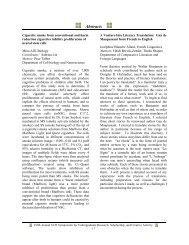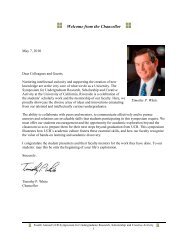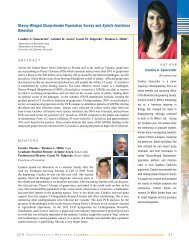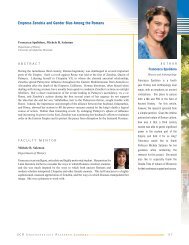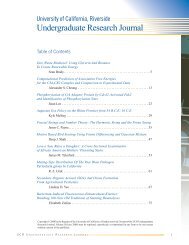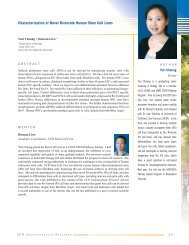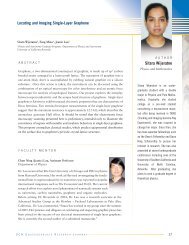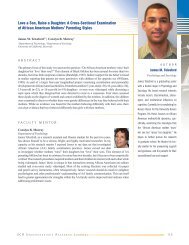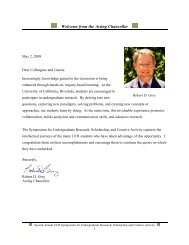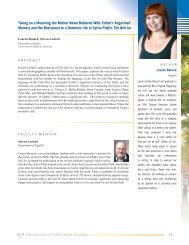Undergraduate Research Journal
Undergraduate Research Journal
Undergraduate Research Journal
You also want an ePaper? Increase the reach of your titles
YUMPU automatically turns print PDFs into web optimized ePapers that Google loves.
Effects of Dietary Phytoestrogens on Paternal<br />
Responsiveness and Maturation in the<br />
Biparental California Mouse<br />
Aaron T. Stamp 1 , Trey Amador 2 , Breanna Harris 2 ,<br />
Juan Pablo Perea-Rodriguez 2 , Wendy Saltzman 2<br />
1<br />
Department of Bioengineering<br />
2<br />
Department of Biology<br />
University of California, Riverside<br />
ABSTRACT<br />
The California mouse (Peromyscus californicus) is a monogamous, biparental rodent in which<br />
fathers show strong attraction to pups while virgin males show variable paternal responsiveness.<br />
Previous studies have demonstrated that circulating testosterone enhances paternal behavior in<br />
this species via aromatization to estrogen. We tested the hypothesis that paternal responsiveness<br />
in virgin males would likewise be enhanced by dietary estrogens (i.e., phytoestrogens) from<br />
soy. Virgin males (N=16 per group) were fed commercially available diets containing high,<br />
medium, or low levels of soy from the time of weaning until sacrifice in early adulthood,<br />
and behavioral responses to an unfamiliar pup, body mass, testis masses, fat-pad masses, and<br />
epididymal sperm counts were compared among the three groups. No differences were found<br />
in males’ behavioral responses to a pup. Similarly, testis masses, fat-pad masses, and sperm<br />
counts did not differ as a function of dietary phytoestrogen content. However, changes in body<br />
mass over time differed significantly among groups (P


